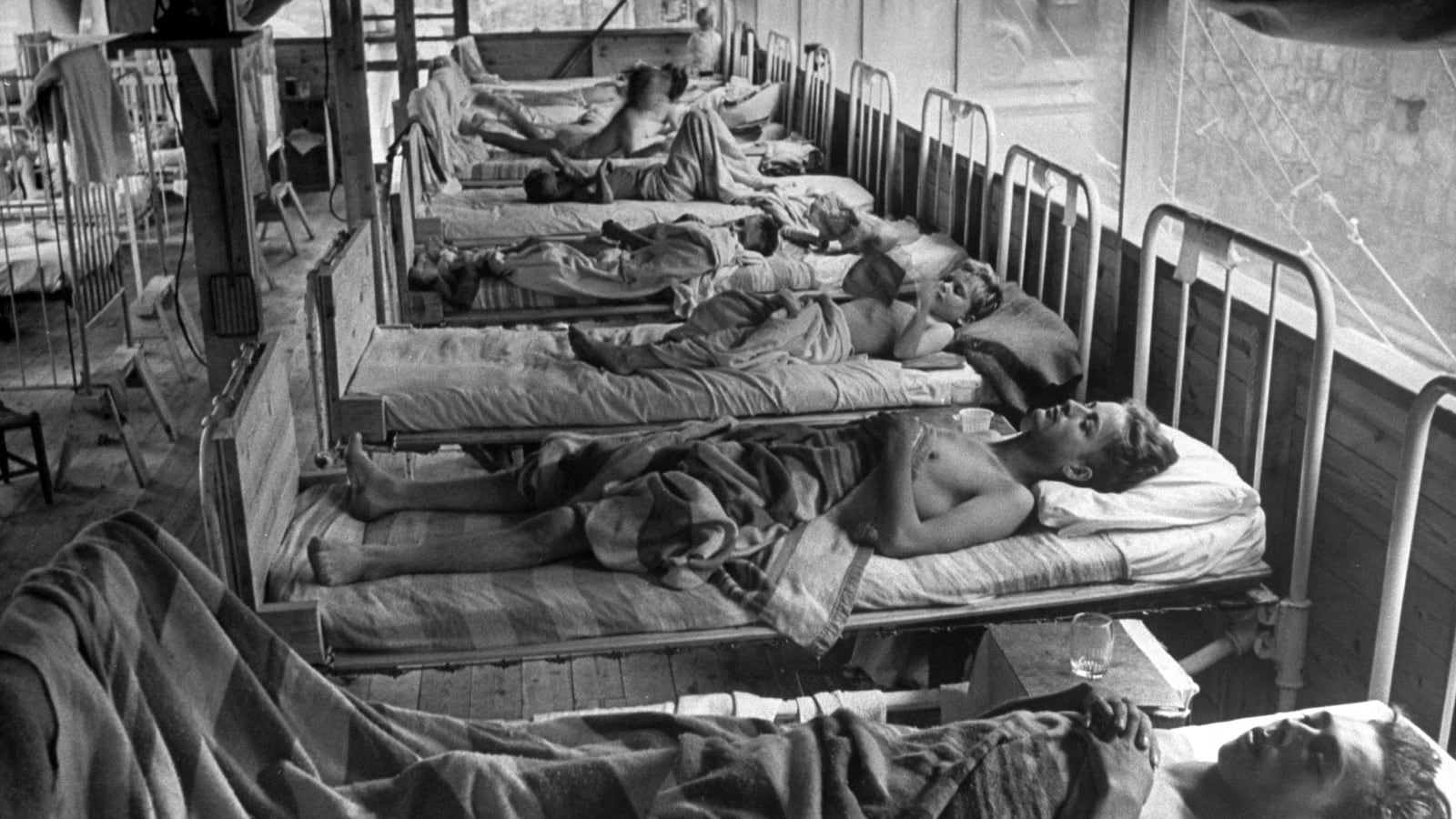The coercive mandatory quarantine of Kaci Hickox, the nurse placed in what amounts to Ebola jail after returning to the United States from West Africa, raises troubling questions about the power that state and federal governments have to forcibly isolate individuals.
Hickox, who told CNN that her “basic human rights have been violated,” was only released Monday, two days after testing negative for Ebola. While quarantined, she was seemingly powerless to challenge her banishment to a tent in Newark.
The nurse’s treatment, as well as the quarantine policies of New York and New Jersey, have been roundly criticized as heavy-handed. A top National Institutes of Health official called the quarantines “draconian.” And former Ebola patient Rick Sacra, a doctor infected in Liberia, likened the mandatory quarantine for returning health-care workers in New York and New Jersey to a “police state approach.”
So is it legal for the government to quarantine individuals or groups of people?
State and federal officials do have the power to quarantine or isolate individuals suspected of having an infectious disease, according to a dizzying patchwork of laws. But beyond the general authority, there are many questions about how quarantines should be implemented.
At the federal level, much remains undefined defined: What would be the basis for quarantining individuals? Where would they be quarantined? What recourse would they have to prove that they should be eligible for release? What access to communications would they be given during quarantine?
“I’ve long been concerned about the quarantine authority because it is so broad, not easily subject to challenge, and exceedingly absolute,” Scott Gottlieb, a physician and a fellow at the American Enterprise Institute, told The Daily Beast.
Gottlieb, who served in the Food and Drug Administration under President George W. Bush, had a hand in a previous effort to set out clearer parameters for quarantine policy.
New quarantine regulations were proposed in 2005, amid fears of the pandemic flu and bioterrorism.
Those rules compelled airlines to keep records that would allow health officials to keep track of passengers. They also introduced the concept of a “provisional quarantine” that would have allowed the federal government to detain individuals for up to three days, with no method for appeal, if the Centers for Disease Control and Prevention believed that a person was infected with certain illnesses.
“It didn’t work because once you start to debate these things, people were so uncomfortable about the answers to these questions they decided not to answer them,” Gottlieb said.
The rules were withdrawn in 2010 by the Obama administration, after civil-liberties organizations protested and airlines complained about compliance costs.
Today governments have the right to put individuals in quarantine before they have the right to argue that they shouldn’t be placed there. Suspicion of exposure to Ebola, for example, is sufficient to justify mandatory isolation.
“That is lawful due to the sheer nature of public-health powers,” said James Hodge, a professor of public-health law at Arizona State University. “You don’t have to let them off the plane, circulate around… and then proceed to a courthouse... You can isolate now and provide due process after.”
The federal government is responsible for quarantining individuals traveling from outside the United States or between states, while state and local governments have control over individuals who are traveling only locally.
The nurse who had traveled to West Africa to fight Ebola became caught up in the quarantine policies issues by the state of New Jersey. She was held in a presumptive quarantine that rounded up an entire class of people—in this case health-care workers who battled the infectious disease in a hot zone—and forcibly segregated.
Overreaction is still a concern that worries public-health experts. For Gottlieb, the disaster scenario is an outbreak of an infectious disease in a major city that overwhelms local health authorities, who then quarantine dozens or even hundreds of people in crowded facilities.
“That’s not far-fetched,” Gottlieb said. “In that kind of scenario, they will over-quarantine people.”
There are still legal limits to how far quarantines could extend. Entire towns or neighborhoods could not be targeted for quarantine, Hodge said.
“Courts have been very reticent to let health authorities at any level to simply rope off a community,” he told The Daily Beast, adding that exposure does not mean simply proximity to infected individuals. “Just because you’re in the vicinity of someone who was infected doesn’t mean you’re exposed.”
Quarantining passengers who have been exposed to a dangerous infectious disease on a plane or a group of children who have been in the same classroom with an infected patient, for example, would be situations with stronger legal standing.
In order to maintain constitutional compliance, Hodge explained, the quarantine or forced isolation needs to be limited to those who were infected or known to be exposed to Ebola; the quarantined individuals need to have access to due process; and the government needs to justify the restrictions placed on these individuals.
Legal challenges to quarantine also could be based on these standards. The recently released Hickox is considering suing over her mandatory quarantine, her lawyer’s office told The Daily Beast on Monday. If she files a lawsuit, the New Jersey state government would have to defend its actions and perhaps, in the process, come up with improved quarantine protocols.




